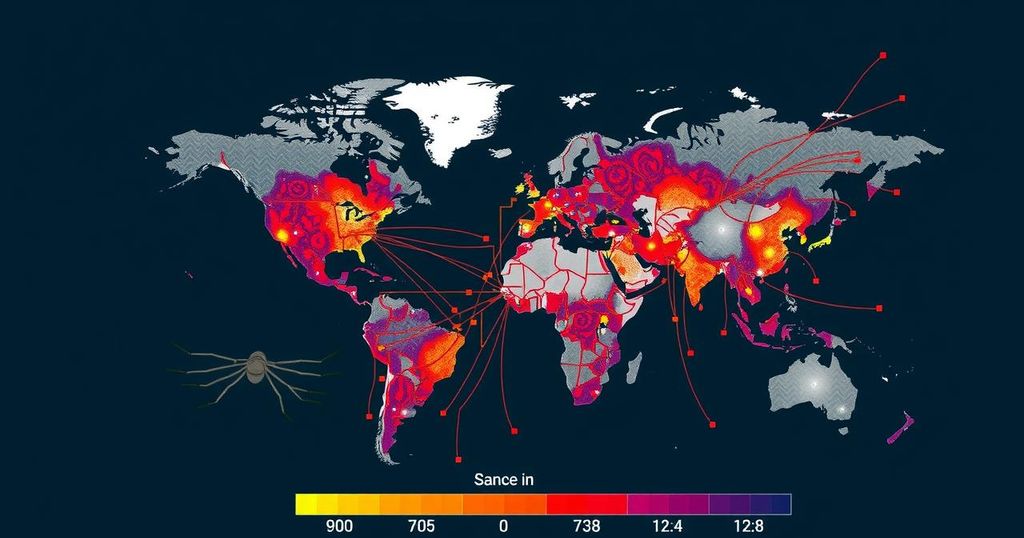Climate change is significantly increasing dengue fever cases worldwide, with rising temperatures conducive to the Aedes aegypti mosquito’s proliferation. A study indicates that up to 60% of dengue infections may be linked to climate change by 2050. Preventative measures include reducing emissions and mosquito control strategies to mitigate the impact of this growing health threat, particularly in vulnerable regions.
The looming threat of climate change has been linked to a significant rise in dengue fever cases, a dangerous mosquito-transmitted illness leading to severe health problems and fatalities. Recent research indicates that approximately 20% of dengue infections globally can be attributed to climate change, with projections suggesting this figure may increase to 60% by 2050 if greenhouse gas emissions remain uncurbed. Rising temperatures are fostering the ideal conditions for the Aedes aegypti mosquito, crucial in the transmission of dengue.
Dengue fever is endemic in many regions globally, particularly in parts of Asia and the Americas. With rising global temperatures, the conditions for Aedes aegypti mosquito reproduction and virus transmission are becoming increasingly favorable. A recent investigation into 1.5 million dengue cases has revealed that warmer climates enhance the rate of mosquito breeding and the propagation of the virus within the mosquito, consequently heightening transmission rates. This study has pinpointed an optimal temperature range of approximately 84°F (29°C) for dengue transmission, underscoring the precarious situation in countries like Peru, Mexico, and Brazil. Despite the concern over rising temperatures, there is an opposing trend in extremely hot areas, where excessive heat may diminish mosquito populations, ultimately reducing transmission. Public health officials are increasingly aware that the intersection of climate change and increased global travel is likely to further expand the reach of dengue fever into temperate regions.
In conclusion, addressing the escalating threat of dengue fever, propelled by climate change, necessitates comprehensive action including mitigating carbon emissions and developing effective mosquito control strategies. The integration of innovative solutions such as introducing Wolbachia bacteria into mosquito populations has shown promise. Public health measures and community education are critical to reduce transmission risks. As global temperatures continue to rise, there is an urgent need for collaborations among environmental and health sectors to protect vulnerable populations and enhance health systems globally.
Original Source: www.natureworldnews.com






